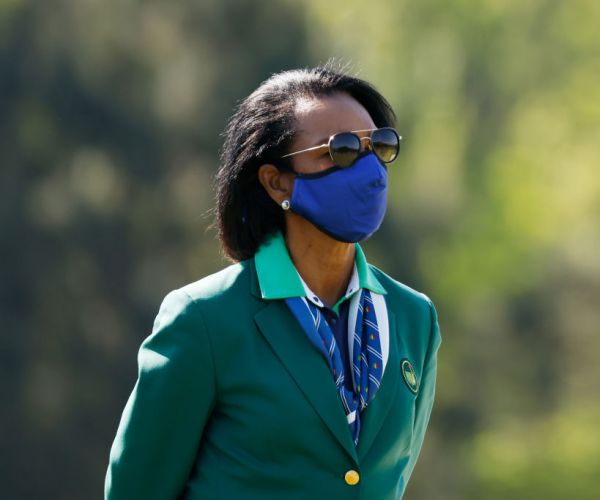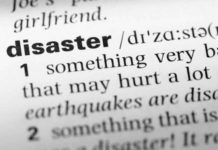Former Secretary of State Condoleezza Rice, the national security adviser during the Sept. 11, 2001 attacks, on Saturday expressed concern that the United States no longer has the intelligence capabilities on the ground it needs after seven American military bases, including Bagram Airfield, had been given up with the end of the war in Afghanistan.
“Intelligence is not, in these cases, what you get from satellite imagery,” Rice said on a Washington Post podcast, during which she recalled her memories of the day the United States came under attack by terrorists, and the aftermath since then.
“It’s human intelligence. It’s what diplomats can pick up just by being experienced people in the area. I’m worried that we don’t have those capabilities.”
Bagram, she added, not only allowed a good connection with Afghanistan, “but we have to remember Iran has a 900-kilometer border with Afghanistan.”
The capabilities will be hard to replace, she told interviewer David Ignatius, “and so I hope that we will not be attacked again.”
However, the intelligence systems have changed for the better since the days of the 9/11 attacks, said Rice.
“The FBI and the CIA do talk to each other in ways that they didn’t before, through the National Counterterrorism Center, which merges all of our intelligence,” said Rice. “We have counterterrorism operations in other parts of the world. I think our allies and even our foes are much more aware of what terrorists can do. We’ve got systems to track terrorist financing. A lot has happened to make things better.”
However, Rice said she does think the United States “fell into the wrong narrative about Afghanistan.”
The analogy should have been drawn to the one the United States has with Korea.
“We are in an armistice in Korea,” said Rice. “We never won that war. We fought the North Koreans and the Chinese to a stalemate, and then, we established a stable South Korean government, which, by the way, was not democratic for many decades.”
After that, American forces were left in South Korea “to make sure that North Korea didn’t get any dangerous ideas,” said Rice, and she thinks troops should be in Afghanistan now. Meanwhile, recognizing the Taliban as the official government of Afghanistan would be the United States’ “last card, and I certainly wouldn’t play it soon.”
“I find it hard to believe we would ever actually recognize the government that harbored the people that killed 2,997 innocent souls on our territory,” said Rice. “I find that hard to believe. And it would have to be an awfully compelling reason to ever do that with the Taliban.”
She said she does hope and pray that reports of a new Taliban are true, and that “perhaps, they are different than they were, the brutal people who not only harbored Al-Qaeda but executed women in a soccer stadium given to them by the United Nations.”
The United States does have ways of dealing with countries that it doesn’t recognize, though, through third parties, and Rice said that is possible with the Taliban.
“We’ve put ourselves in a position where we have to talk to them because we still have Americans and Afghan allies who’ve got to get out of the country,” she said. “I’m hoping, too, that we can find ways to mobilize the international community to moderate some of what they will do to their own people. But recognition? I just don’t see it.”
Ignatius also asked Rice about her judgment behind the decision to invade Iraq in 2003, and whether then-President George W. Bush would have changed his mind if the arguments at that time about weapons of mass destruction were proven false, as many of the claims were later determined to be.
“It’s completely speculative,” she said. “What if we had known? It would’ve, of course, depended on what we knew, and the fact is, when you have an opaque regime like that, that wants to hide weapons of mass destruction or their production, it’s very hard to know, and the intelligence certainly supported the idea that they had them.”
She said she does think Iraq is better off without Saddam Hussein, and she believes the country will become more integrated into a Sunni community of states that eventually changes in its relationship with Israel.
Overall, the lesson now, 20 years after the 9/11 attacks, is that the United States “learned the hard way that our security is inextricably linked to others and that security is not just a matter of external relations,” Rice said.
She added that “as much as the United States wants to be ‘Fortress America,'” we’re not.
“If we overreached, in hoping that we would help to bring others a more democratic and freer life, that’s an overreach I will defend, because there’s one other thing that we know — failed states that oppress their own people are the cesspool in which terrorism grows,” said Rice.




